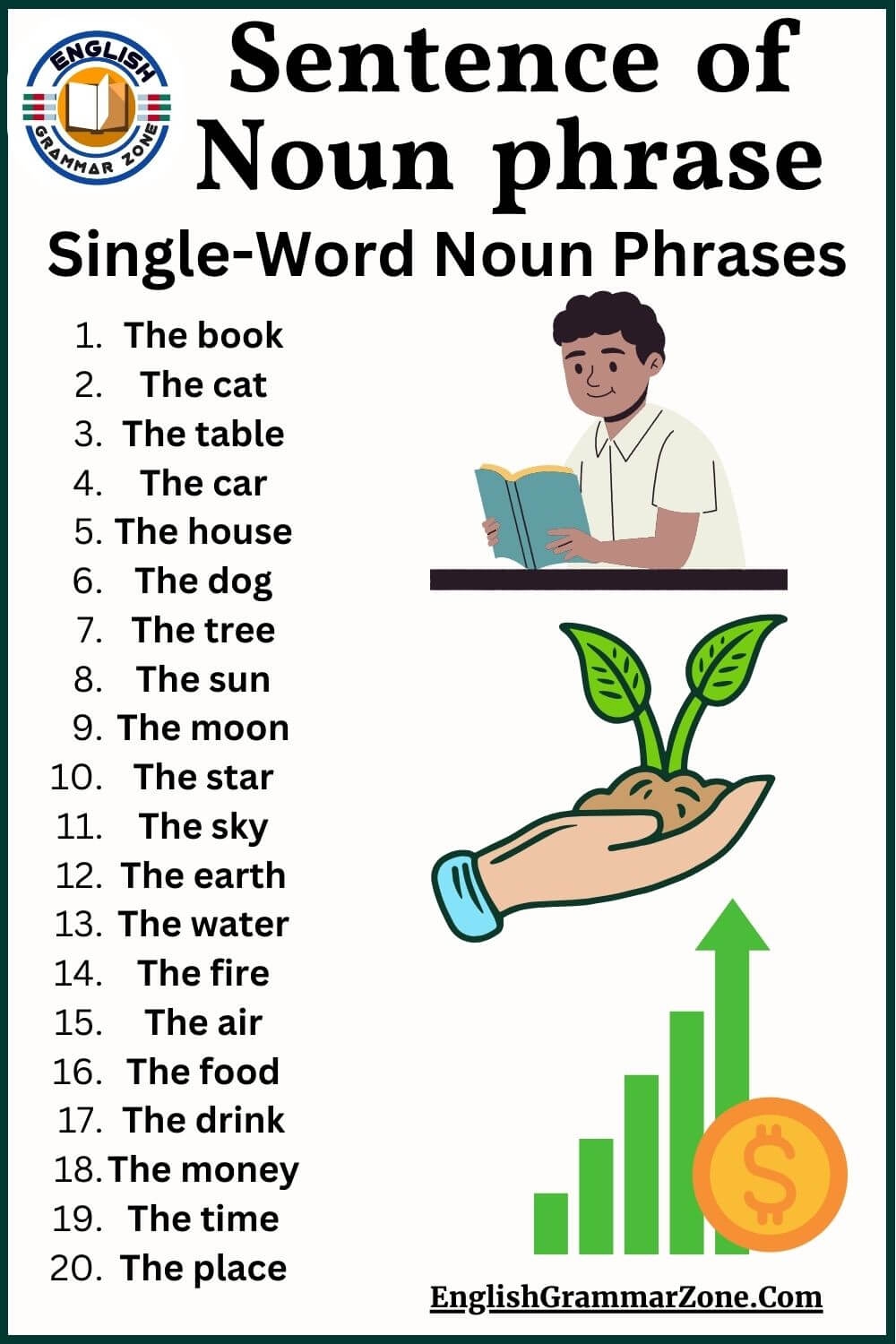Nouns are words that represent a person, place, thing, or idea. They are an essential part of any sentence and can be singular or plural. Noun phrases, on the other hand, are groups of words that function as nouns in a sentence. They can consist of a single noun or be more complex with modifiers and determiners.
Understanding nouns and noun phrases is crucial for constructing clear and concise sentences. Let’s explore some examples of both to help you grasp their usage in sentences.
Examples of Nouns and Noun Phrases
1. Noun Example: dog
This noun represents a four-legged animal that is often kept as a pet. In a sentence, it can be used as the subject, object, or complement.
2. Noun Phrase Example: the big brown dog
In this noun phrase, “the” is a determiner, “big” is an adjective, “brown” is another adjective, and “dog” is the main noun. Together, they form a complete noun phrase that provides more detail about the dog.
3. Noun Example: book
This noun represents a written or printed work that can be read. It is a common noun that can be used in various contexts within a sentence.
4. Noun Phrase Example: the interesting mystery book
In this noun phrase, “the” is a determiner, “interesting” is an adjective, “mystery” is another adjective, and “book” is the main noun. The noun phrase provides more specific information about the type of book being referenced.
5. Noun Example: friend
This noun represents a person who is close to you and with whom you have a bond of mutual affection. It can be used as a subject, object, or possessive in a sentence.
These examples illustrate the versatility of nouns and noun phrases in forming meaningful sentences. By incorporating them effectively in your writing, you can enhance the clarity and coherence of your communication.
